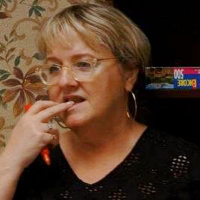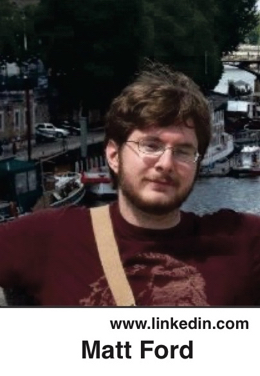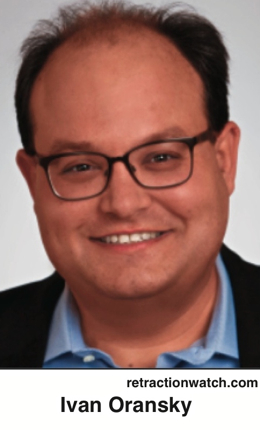Rascals case in brief
In the beginning, in 1989, more than 90 children at the Little Rascals Day Care Center in Edenton, North Carolina, accused a total of 20 adults with 429 instances of sexual abuse over a three-year period. It may have all begun with one parent’s complaint about punishment given her child.
Among the alleged perpetrators: the sheriff and mayor. But prosecutors would charge only Robin Byrum, Darlene Harris, Elizabeth “Betsy” Kelly, Robert “Bob” Kelly, Willard Scott Privott, Shelley Stone and Dawn Wilson – the Edenton 7.
Along with sodomy and beatings, allegations included a baby killed with a handgun, a child being hung upside down from a tree and being set on fire and countless other fantastic incidents involving spaceships, hot air balloons, pirate ships and trained sharks.
By the time prosecutors dropped the last charges in 1997, Little Rascals had become North Carolina’s longest and most costly criminal trial. Prosecutors kept defendants jailed in hopes at least one would turn against their supposed co-conspirators. Remarkably, none did. Another shameful record: Five defendants had to wait longer to face their accusers in court than anyone else in North Carolina history.
Between 1991 and 1997, Ofra Bikel produced three extraordinary episodes on the Little Rascals case for the PBS series “Frontline.” Although “Innocence Lost” did not deter prosecutors, it exposed their tactics and fostered nationwide skepticism and dismay.
With each passing year, the absurdity of the Little Rascals charges has become more obvious. But no admission of error has ever come from prosecutors, police, interviewers or parents. This site is devoted to the issues raised by this case.
On Facebook
Click for earlier Facebook posts archived on this site
Click to go to
Today’s random selection from the Little Rascals Day Care archives….
Click for earlier Facebook posts archived on this site
Click to go to
Today’s random selection from the Little Rascals Day Care archives….
Exoneree sees through prosecutors’ excuses: ‘I call BS’

facebook.com
Martha Waggoner
June 30, 2016
“North Carolina’s district attorneys say a proposed rule that would require them to turn over evidence of innocence after a person is convicted is….”
Anyone familiar with the worst practices of DAs won’t be surprised at the rest of Martha Waggoner’s sentence:
“….unnecessary because prosecutors already believe it should be turned over at any point, including post-conviction.”
Chris Mumma of the N.C. Center on Actual Innocence, herself punished for exposing wrongful prosecutions, wondered why DAs would object to putting their high standard in writing: “If all the rule does is raise confidence in the process, then it’s beneficial.”
A more visceral response appeared on reporter Waggoner’s Facebook page – from exoneree Dwayne Dail:
“If it is unnecessary and they already believe that there is a rule that holds them to that standard, then why haven’t they been doing it?! Why have they argued that they had no obligation to do this? Why wasn’t I told that there was an alternative suspect in MY case, who just so happened to be the true perp? Why did I only find out after years of investigation during my civil suits, after my exoneration, that the actual perp’s name was in their files but was never investigated? I call BS.”
Dail was convicted of raping a 12-year-old Goldsboro girl in 1987. DNA evidence cleared him in 2007.
![]()
Can we cope with seeing wrongful convictions?
 Feb. 20, 2015
Feb. 20, 2015
“Exonerations, which were once exceedingly rare, have become regular features of the American justice system. The National Registry of Exonerations records 1,535 exonerations nationwide (including Bob Kelly and Dawn Wilson) since records began in 1989….
“The 125 wrongful convictions thrown out in 2014… might seem paltry compared to the estimated 1 million felony convictions per year, but the number of wrongful convictions is likely far higher. Many jurisdictions don’t devote the same level of resources towards exonerations that North Carolina does (with its Innocence Inquiry Commission), and even then the process can be achingly slow.
“For a justice system that exalts due process and the presumption of innocence, any wrongful conviction represents a serious breakdown of justice. Even a handful of high-profile wrongful convictions can ripple throughout the public consciousness, undermining confidence in the system. ‘The country is having to psychically cope with conclusive evidence that we make, with some regularity, errors in criminal trial outcomes,’ said (Mary Kelly Tate, director of the University of Richmond law school’s Institute for Actual Innocence).”
– From “Guilty, Then Proven Innocent” by Matt Ford at The Atlantic (Feb. 9)
Parents stake claim on ‘years of trauma and persecution’
Nov. 9, 2011
“Fear recaptured the 9-year-old, much as it had six years ago when last he left Bob Kelly’s day care. Lingering fears gripped many of Kelly’s victims when the appellate court overturned his 99 guilty verdicts…. A week later, the little boy is still too frightened to ride his bike around the block….
“We forget the victims – unless we live with them. Our wounds from media distortions heal. Our memories of Kelly’s manipulation of ‘the system’ fade. But the genuine fears of our sons and daughters persist.
“What would you do if you knew your little ones had been sexually abused? Would you seek justice? Would… you be able to endure the years of trauma and persecution? We implore our fellow North Carolinians to ponder those questions…. Join us in requesting that the North Carolina Supreme Court uphold these verdicts.
“If the court denies the opinions of two separate juries that found both (Kelly and Dawn Wilson) guilty, the innocent victims will be under attack again. Do helpless child victims forget the brutality of rape, sodomy and crimes against nature? A more significant question is: Do we in North Carolina want to pry those agonizing details from them once more?
“True, many are old enough to realize that Bob Kelly can’t work his threatened evil to kill their families. But others still draw pictures of their visions of safety: pictures of heaven and guardian angels because they say, ‘I know Mr. Bob won’t be in Heaven.’
“We must take a stand against re-victimization of the innocent. Don’t interrupt the healing that is emerging in these courageous young ones. Refuse to allow the media to create a ‘circus’ in our noble state. Child sexual abuse can no longer be allowed or excused in North Carolina.”
– From a letter to the editor of the (Norfolk) Virginian-Pilot, signed by 17 parents of children involved in the Little Rascals case (May 14, 1995)
Buried in the Edenton parents’ heartfelt plea to the N.C. Supreme Court (which would soon agree with the Court of Appeals’ overturning the convictions of Kelly and Wilson) is this profoundly revealing question: “Do we in North Carolina want to pry those agonizing details from them once more?”
If only those details had not been pried from the children in the first place….
Psychiatric Times clings to embarrassing position
 Feb. 14, 2014
Feb. 14, 2014
Thanks to Ivan Oransky at Retraction Watch for spotlighting Psychiatric Times’ remarkably inept retraction of Richard Noll’s “When Psychiatry Battled the Devil.”
Don’t miss the update appended by Dr. Noll:
“On 16 January 2014 I received a gracious email from PT’s editor-in-chief, Dr. James Knoll, updating me on the status of my submission. This message cleared up the mystery of the published article’s disappearance from PT.
“According to Dr. Knoll, ‘In an effort to present both sides, PT contacted Dr. (Richard) Kluft (of Philadelphia). Please know that not only did he take exception to a number of your points, but he also raised the issue of legal liability. We are currently in the process of confirming that Dr. Kluft is willing to write a rejoinder to your piece.’
“Apparently he refused. About 10 days later I received another email from Dr. Knoll telling me that the reposting of my piece was to be put on hold at the advice of their attorneys. He did not outright reject the possibility it would be reposted, but I have heard nothing since….”
Followers of Retraction Watch – or even of littlerascalsdaycarecase.org – are not surprised to see editors go to absurd lengths to avoid candid correction. But the behavior of Psychiatric Times, billed as the most widely read psychiatric publication and boasting a lengthily-credentialed editorial board, seems especially unbecoming – even pusillanimous.
Dr. Kluft? Dr.Knoll? Can’t you do better?











0 CommentsComment on Facebook